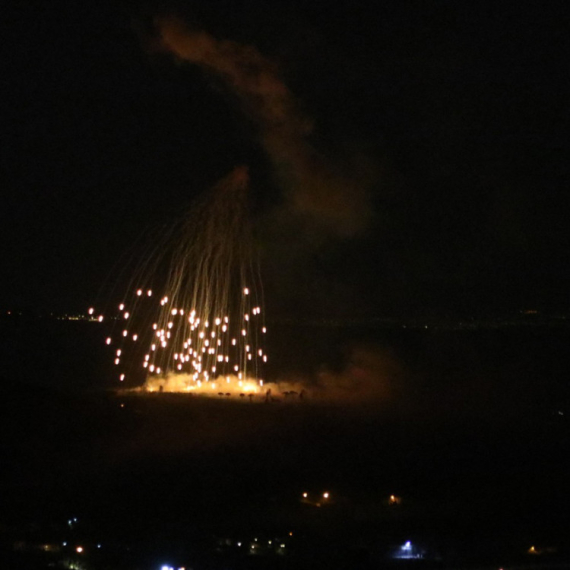Stolen Stone Age artifacts returned to Greece
A stolen collection of artifacts dating from more than 8,000 years ago has been returned from Germany to Greece.
Wednesday, 31.10.2007.
13:03

A stolen collection of artifacts dating from more than 8,000 years ago has been returned from Germany to Greece. The Neolithic-era artifacts were stolen by armed burglars from a private collection in Larissa, central Greece, in 1985 and seized by the German police in Munich a year later. The case remained virtually forgotten until a Munich court ruled in August that the finds should be returned to Greece. Stolen Stone Age artifacts returned to Greece "These works are exceptional examples" of the Neolithic culture, Culture Minister Michalis Liapis said. "We are very happy to get them back, as we consider antiquities theft a global scourge." The 94 stone and pottery works - statuettes, tools and tiny vases - mostly date between 6500 and 5300 B.C. and come from the central Thessaly region, where Greece's most important Neolithic settlements have been excavated. Nikos Kaltsas, an archaeologist who is the director of the National Archaeological Museum in Athens, said the artifacts, which are up to 12 centimeters, or 5 inches, high, "date to the dawn of human awareness" and appear to include portraits of Neolithic women. The stolen pieces were smuggled to Munich, where the thieves tried to sell them to a local museum, Liapis said. Museum officials tipped off the police, who seized the works. Nobody was convicted for the theft, and the Greek authorities only began a serious legal bid for their return six months ago. "The case had been put on the back burner," Liapis said. Liapis did not explain the delay, but his predecessor, George Voulgarakis, who initiated the bid in April, blamed "state inefficiency." Constantinos Theodoropoulos, the collector from whose house the works were stolen, has donated the artifacts to the state. They will be temporarily exhibited in Athens before being transferred to a museum in Larissa, where the rest of Theodoropoulos's collection - about 2,500 Neolithic artifacts - will be housed. Theodoropoulos said more than 60 stolen pieces were still missing. The Neolithic age, stretching roughly from 6800-3200 B.C., saw the creation of Greece's first farming settlements, mostly in the fertile plains of Thessaly and Macedonia.
Stolen Stone Age artifacts returned to Greece
"These works are exceptional examples" of the Neolithic culture, Culture Minister Michalis Liapis said. "We are very happy to get them back, as we consider antiquities theft a global scourge."The 94 stone and pottery works - statuettes, tools and tiny vases - mostly date between 6500 and 5300 B.C. and come from the central Thessaly region, where Greece's most important Neolithic settlements have been excavated.
Nikos Kaltsas, an archaeologist who is the director of the National Archaeological Museum in Athens, said the artifacts, which are up to 12 centimeters, or 5 inches, high, "date to the dawn of human awareness" and appear to include portraits of Neolithic women.
The stolen pieces were smuggled to Munich, where the thieves tried to sell them to a local museum, Liapis said. Museum officials tipped off the police, who seized the works. Nobody was convicted for the theft, and the Greek authorities only began a serious legal bid for their return six months ago.
"The case had been put on the back burner," Liapis said. Liapis did not explain the delay, but his predecessor, George Voulgarakis, who initiated the bid in April, blamed "state inefficiency."
Constantinos Theodoropoulos, the collector from whose house the works were stolen, has donated the artifacts to the state. They will be temporarily exhibited in Athens before being transferred to a museum in Larissa, where the rest of Theodoropoulos's collection - about 2,500 Neolithic artifacts - will be housed.
Theodoropoulos said more than 60 stolen pieces were still missing.
The Neolithic age, stretching roughly from 6800-3200 B.C., saw the creation of Greece's first farming settlements, mostly in the fertile plains of Thessaly and Macedonia.

















































Komentari 0